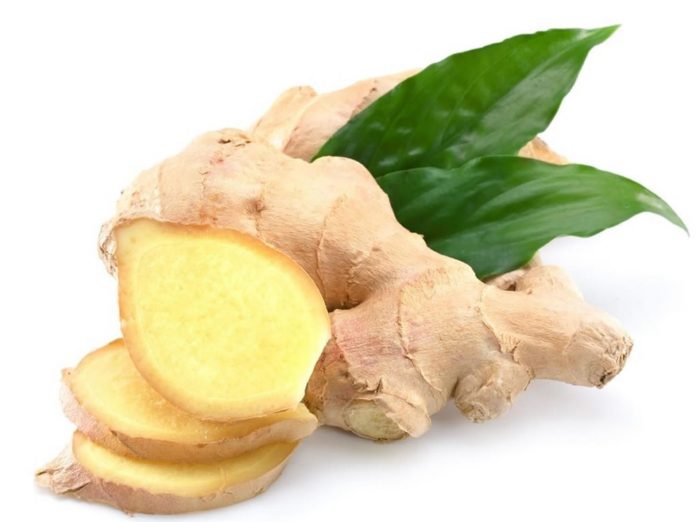Manalapan health Examiner Stacey Chillemi researched a variety of recent studies on alternative methods and herbal supplements that have been used for centuries to help prevent and cure bacterial overgrowth. Some of these time-honored remedies are showing promising results in recent research studies. Here is a rundown of some of the most popular natural remedies for bacterial overgrowth.
What is Bacterial Overgrowth?
It is not an overstatement to say that the small intestine is the most important segment of the entire digestive tract, which starts at the mouth and ends at the rectum. Nutrients we eat — carbohydrates, proteins, fats, vitamins, and minerals — are absorbed in the small intestine. If anything interferes with the absorption here, nutrient deficiencies can result.
The small intestine normally contains relatively small numbers of bacteria. However, certain factors can cause the growth of excess bacteria. Through a process called bile acid deconjugation, the unwanted bacteria causes’ fat malabsorption. It also blocks carbohydrates from being absorbed. Instead, they are left to ferment in the intestines, resulting in gas, bloating, pain, mucus in stools, foul-smelling gas and stools, and diarrhea. Sweets and starchy foods cause the worst symptoms.
A toxic metabolic substance produced by the bacteria injures intestinal cells and impairs absorption, resulting in nutrient deficiencies, food allergies and intolerances, and poorly functioning digestive enzymes.
What recent research has concluded:
A study by researchers at Cedars-Sinai Medical Center in California examined 202 people who met the diagnostic criteria for irritable bowel syndrome and gave them a test for bacterial overgrowth called the lactulose hydrogen test.
Researchers found that 157 of the 202 people (78%) had bacterial overgrowth. When the unwanted intestinal bacteria were eradicated, symptoms of IBS improved in 48% of the subjects, particularly diarrhea and abdominal pain.
It is not just people who have similar symptoms to IBS that have bacterial overgrowth. Bacterial overgrowth can also present with non-digestive symptoms such as fatigue. It is believed to be involved in chronic fatigue syndrome, fibromyalgia, allergies, arthritis, lupus, autoimmune diseases, diabetes, and many other chronic conditions.
Herbals used to treat bacterial overgrowth
The most studied natural treatment for bacterial overgrowth is enteric-coated peppermint oil, which is peppermint oil that has an edible, hard shell around it so that the capsule does not open until it is in the small intestine. It kills bacteria in the small intestine.
Grapefruit seed extract – for people who do not like taking capsules, grapefruit seed extract can be found in liquid form. Add a few drops to a glass of water and drink in between meals.
Oregano oil capsules
Garlic
Berberine – goldenseal, Oregon grape
Olive leaf extract
Pau d’arco
Diet
During treatment, it is necessary to limit intake of sweet and starchy foods. People usually experience a noticeable decline in bloating, gas, indigestion, diarrhea, and other digestive symptoms.
Digestive enzymes
Digestive enzyme supplements can support the body’s digestive enzymes until function is restored. They should be taken before meals. A typical dose is one capsule before each meal.
Vitamins and minerals
Vitamins and minerals that may be deficient in people with bacterial overgrowth include vitamin B12, magnesium, calcium, iron, zinc, copper, vitamin A, D, E, and K. You may want to request to have your doctor give you a full blood work up, so you can see if your body is lacking certain vitamins and nutrients.
Probiotics
Probiotics are needed to replace healthy bacteria in the intestines. Lactobacillus plantarum and lactobactillus GG are some Types: that have been used for bacterial overgrowth.
What conditions can bacterial overgrowth cause?
Leaky gut syndrome
Vitamin and mineral deficiency
Non-alcoholic steatohepatitis (NASH)
Chronic fatigue syndrome
Get a diagnosis from your doctor
Before you start taking herbal supplements because you think you have bacterial overgrowth, be smart and get a diagnosis from your doctor. Tell your doctor you think you may have it and request to be tested.
Tests that diagnose bacterial overgrowth
The “gold standard” test is to take bacterial cultures of small intestine fluid.
Lactulose hydrogen breath test is the most common test because it is less invasive. Lactulose is a non-absorbable sugar that is fermented if there are intestinal bacteria, resulting in hydrogen production. If there is bacterial overgrowth, fasting hydrogen levels will be high. In addition, after ingesting glucose, there will be a significant rise in hydrogen.
Other tests are the schilling test (for b12 deficiency). A small bowel follow through may be done to look for structural problems.
Precautions:
If you are taking other medications, refrain from taking herbal supplements without first checking with your doctor. Herbal supplements and over-the-counter medications or prescription drugs can combine to cause adverse side effects. Just because an herbal supplement is extracted from, a “natural” source does not render it any less potent than any other chemicals you may ingest.








